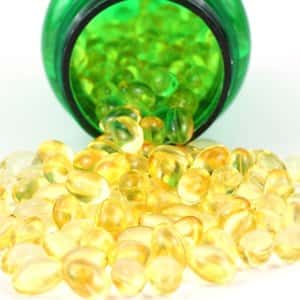
You may have heard that vitamin D is known as the sunshine vitamin. That is because skin exposed to sunlight makes this crucial hormone. However, when nights are long and days are short and cold, we can’t get adequate vitamin D this way. A few foods contain modest amounts of vitamin D, but many people rely on supplements.
Will Supplements Provide Adequate Vitamin D?
Q. I live in Seattle. How could I get an adequate amount of vitamin D during our overcast and foggy nine-month long winters without taking a supplement? I know the recent research on vitamin D showed it doesn’t help for heart disease, but doesn’t it protect against bone loss? My doctor recommended a vitamin D supplement when I was diagnosed with osteopenia several years ago. Am I pouring my money down a rat hole?
Discouraging Results from the VITAL Trial:
A. Many readers were upset to learn about the results of the VITAL clinical trial (New England Journal of Medicine, Nov. 10, 2018). It demonstrated that people taking 2000 IU of vitamin D3 were no less likely than those on placebo to develop cancer or suffer cardiovascular complications. This study did not address bone health, although some other studies have also been discouraging about the benefits of vitamin D supplements for bone.
We think that adequate vitamin D is essential for good health, however. People who live in northern regions such as Seattle, Milwaukee or Boston may find it difficult to get enough vitamin D through sun exposure.
Learn How to Get Adequate Vitamin D:
To learn more about the complex role vitamin D plays in the body and how much is needed, you may wish to read Dr. Tieraona Low Dog’s book, Fortify Your Life: Your Guide to Vitamins, Minerals, and More. It is available in libraries or in a special paperback edition from www.PeoplesPharmacy.com. You may also wish to listen to Dr. Low Dog discuss the pros and cons of supplements in Show 1124: Should You Be Taking Vitamin Supplements?
We also offer our Guide to Vitamin D Deficiency for additional information.

